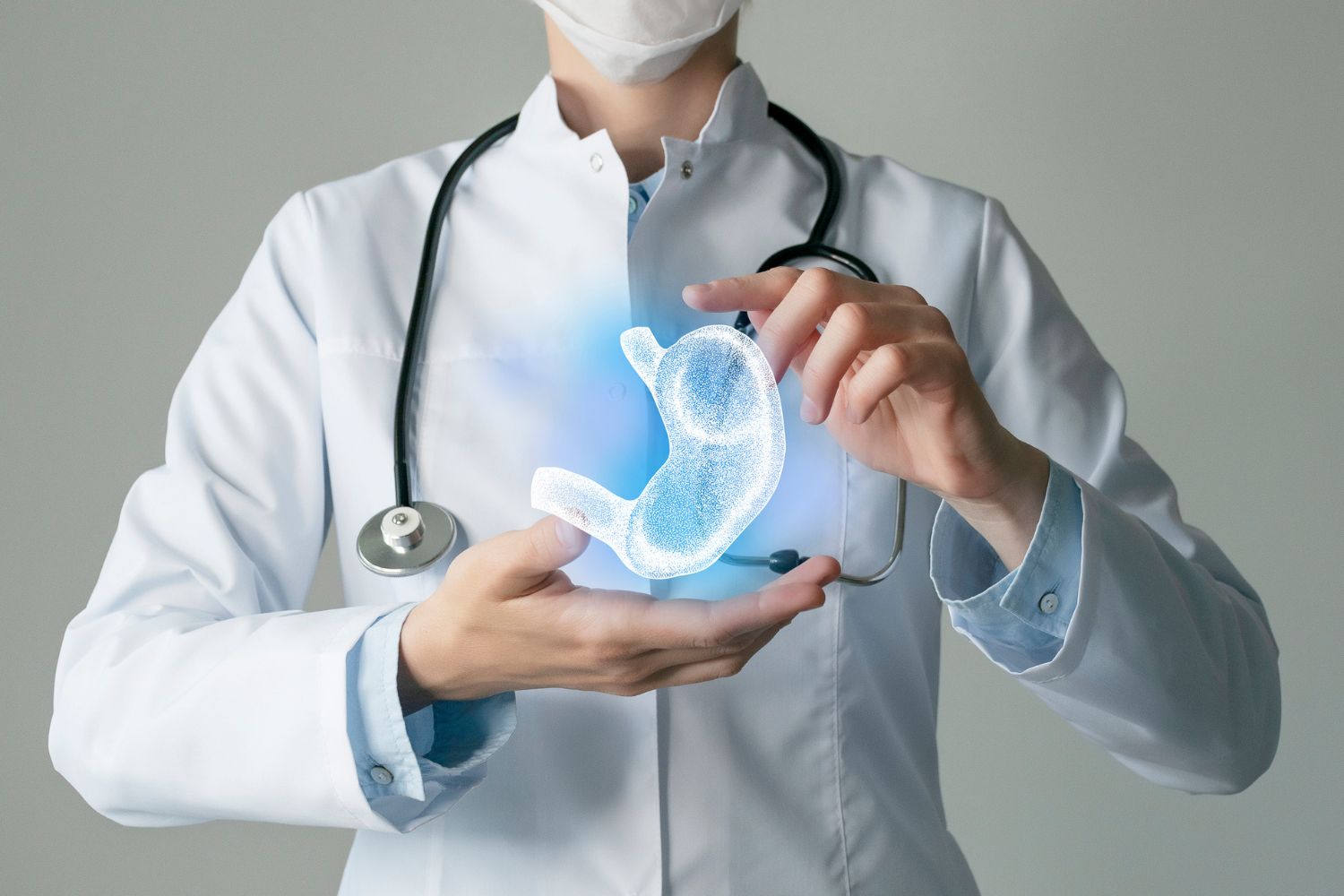Bacterial Infection or Use of anti-inflammatory medications can lead to Peptic Ulcers

Peptic ulcers are abrasions or lesions that develop on the lining of your stomach and small intestine. The most common symptom of a peptic ulcer is stomach pain.
Peptic ulcers include gastric ulcers (stomach) and duodenal ulcers (small intestine).
Commonly these are caused by either infection with the bacteria Helicobacter pylori and long-term use of nonsteroidal anti-inflammatory drugs such as Brufen.
Stomach ache and peptic ulcers
Stress and spicy foods do not cause peptic ulcers, but can make symptoms worse. The most common peptic ulcer symptom is burning stomach pain.
Stomach acid makes the pain worse, as does having an empty stomach.
The pain can often be relieved by eating certain foods that buffer stomach acid or by taking an acid-reducing medication, but it may come back.
The pain may be worse between meals and at night. Many people with peptic ulcers don’t even have symptoms.
ALSO READ: Tips on how to get enough sleep

Symptoms
The most common symptoms are:
- Burning stomach pain.
- Feeling full or bloated.
- Fatty foods make symptoms worse.
- Heartburn.
- Nausea.
Severe symptoms:
- Vomiting or vomiting blood.
- Dark blood in stools or stools that are black.
- Shortness of breath.
- Dizziness and even fainting.
- Unexplained weight loss.

Causes
Peptic ulcers occur when acid in the digestive tract eats away at the surface of the stomach or small intestine.
The acid can create a painful open sore that may bleed.
Common causes include:
Helicobacter pylori (H. py lori), a bacteria that lives in the mucous layer that covers and protects tissues that line the stomach and small intestine.
It can cause inflammation of the stomach’s inner layer, producing an ulcer.
Regular use of certain pain relievers.
Taking aspirin, as well as certain over-the-counter and prescription pain medications, called nonsteroidal anti-inflammatory drugs, can irritate or inflame the lining of your stomach and small intestine.
Risk factors
Alone, these factors do not cause ulcers, but they can make ulcers worse and more difficult to heal.
These factors are:
- Smoking may increase the risk of peptic ulcers in people who are infected with H. pylori.
- Alcohol can irritate and erode the mucous lining of your stomach.
- Have untreated stress.
- Eating spicy foods.
ALSO READ: Signs of PTSD you need to know

Complications
Left untreated, Peptic Ulcers can result in:
- Internal bleeding.
- Severe blood loss may cause black or bloody vomit or black or bloody stools.
- A perforation in your stomach wall puts you at risk of serious infection of your abdominal cavity (peritonitis).
- Obstruction. Peptic ulcers can block the passage of food through the digestive tract
- Gastric cancer. Studies have shown that people infected with H. pylori have an increased risk of gastric cancer.
Diagnosis
The doctor will first take a history and then do a physical examination.
They will then conduct these tests if need be:
- Laboratory tests for H. pylori.
- Endoscopy. Your doctor may use a scope to examine your upper digestive system (endoscopy). During the endoscopy, your doctor passes a hollow tube equipped with a lens (endoscope) down your throat and into your oesophagus, stomach and small intestine. Using the endoscope, your doctor looks for ulcers. If your doctor detects an ulcer, a small tissue sample (biopsy) may be removed for examination in a lab.
- Upper gastrointestinal series. Sometimes called a barium swallow, this series of X-rays of your upper digestive system creates images of your oesophagus, stomach and small intestine.
Treatment
This depends on the cause.
Usually, treatment will involve killing the H. pylori bacterium if present, eliminating or reducing the use of nonsteroidal anti-inflammatories if possible, and helping your ulcer to heal with medication.
Medications can include:
- Antibiotic medications to kill H. pylori.
- Medications that block acid production and promote healing, called proton pump inhibitors.
- Medications to reduce acid production, acid blockers.
Support Local Journalism
Add The Citizen as a Preferred Source on Google and follow us on Google News to see more of our trusted reporting in Google News and Top Stories.






